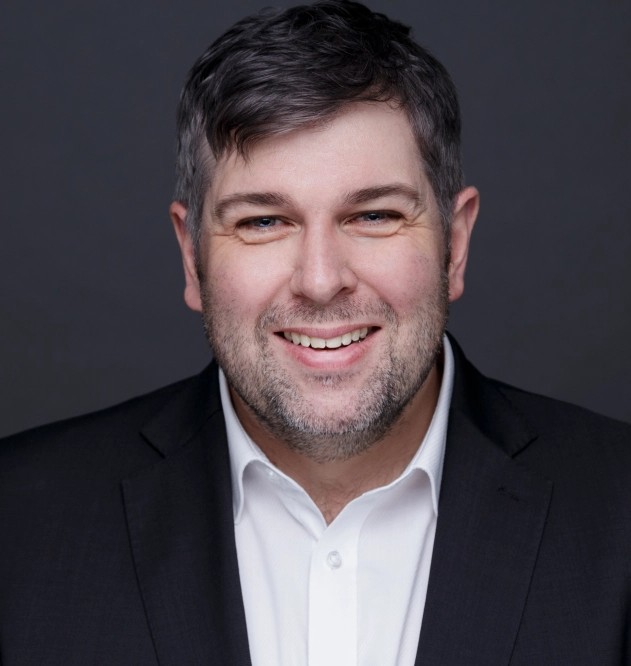Darrin Steward
An HE careers hero, Darrin's work is focused on ensuring every student gets to explore career opportunities.
How did your career in careers begin?
It was unplanned, but meaningful. I was stuck in secondary education when my headteacher suggested I take on the leaving careers adviser's role. That moment forced a decision. I realised it wasn't just an escape but a potential new calling. I committed to the Level 6 Diploma in Career Guidance, and everything changed. I wasn't just leaving something; I was stepping into something I now feel deeply connected to.
What was your turning point?
It came before careers work, during counselling training in my mid-20s. Growing up in a working-class home with violence and economic hardship, I'd learned survival mode. Long-term planning felt impossible. That training helped me understand myself and believe I had agency. That mindset shift was foundational to how I now practise career development. I bring that lived understanding of social inequality and psychological barriers into every guidance session.
What do you do in your current role?
There’s no "typical" day in HE careers work! One day I’ll be delivering 1:1 guidance, the next contributing to course design, running mock interviews, or teaching embedded career modules. I also engage with employers and help shape career strategy across the university. What keeps it rewarding is the variety and the chance to embed equity and opportunity into the student experience in real, tangible ways.
What motivates you?
Social justice. My own experiences of exclusion and limited opportunity made me passionate about giving others access to what I lacked. I want every student, regardless of background, to feel seen, heard, and supported. Careers guidance is more than employability. It’s an invitation for students to explore their identity, their community’s influence, and what’s possible. That work has huge personal and social impact.
What’s your personal work philosophy?
Everyone deserves fair and equitable guidance, and personal experiences matter. I aim to offer the kind of support that can shift a mindset, unlock agency, and make the future feel possible. I also believe students need space to explore belief structures, not just pathways. That’s how we honour diversity and truly engage in meaningful guidance.
What was your biggest challenge?
Self-belief. Having never been to university, I really struggled with imposter syndrome when I started my MA in Career Development and Management at Coventry. I was confident in my practical knowledge, but could I communicate that in academic language? But I did, and with distinction. My MA dissertation became a turning point, and being shortlisted for the 2023 NICEC Bill Law Award was a huge honour. That imposter syndrome is slowly fading.
Favourite career theories?
I’m drawn to a mix of contemporary and reflective models:
Planned Happenstance – Krumboltz
Career Inaction – Verbruggen and De Vos
Chaos Theory of Careers – Pryor and Bright
Kaleidoscope Career Model – Mainiero and Gibson These theories reflect real life—uncertainty, inaction, complexity, and changing values. They give me tools to support students in messy, authentic transitions.
Who has influenced your practice?
So many people. My lecturers at Coventry - Dr Adrian Hancock, Paul Gaunt, Sarah Warburton, Dexter Du Boulay - each shaped my thinking in powerful ways. Beyond that, Liane Hambly is incredibly insightful, Tristram Hooley's work on social justice has been foundational, and Dr Deirdre Hughes is leading the way with AI in careers.
What are you excited about in the sector?
AI. It’s a game-changer, and we need to get ahead of it. From diagnosing student needs to transforming how we deliver information, AI will influence the guidance space. We have a responsibility to use it wisely and teach students how to engage with it critically.
Key learnings from your journey?
You’re more capable than you think.
Your story has value.
There is no one way to be a “good” careers professional—diversity of thought and background enriches the field.
Top tips for new CDPs?
Talk to people across the profession—schools, HE, SEND, criminal justice.
Find your niche.
Follow Chris Webb on LinkedIn—his newsletter is essential.
Don’t underestimate how much support is out there—ask questions, connect, explore.
What’s next for you?
I’m about to begin my PgCAP (Postgraduate Certificate in Academic Practice) and would love to pursue a PhD, looking into how university lecturers see their role in students’ career development. Personal growth is important to me. I want to keep learning, evolving, and contributing meaningfully to the sector.
Final reflections?
One quote that captures it all for me is from Edward De Bono: “If you cannot predict the future, you must flexibly be prepared to deal with various possible futures.” That’s what careers work is about - helping people prepare for possibility in all its forms.

